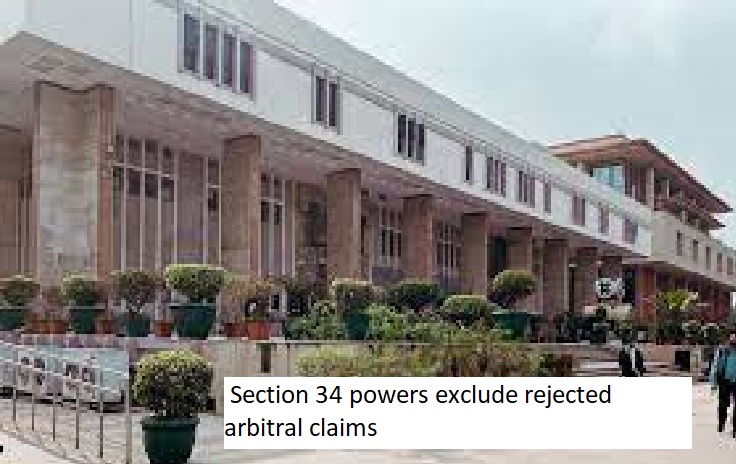


In a recent judgment, the Delhi High Court (HC) delivered a significant interpretation regarding the powers conferred by Section 34 of the Arbitration and Conciliation Act (A&C Act). The court held that when exercising powers under Section 34, it is not within the court's purview to entertain claims that were disallowed or rejected by the arbitral tribunal.
This legal pronouncement came from a bench comprising Justices Suresh Kumar Kait and Neena Bansal Krishna. The essence of their ruling was grounded in the understanding that Section 34 does not authorize the court to rewrite an arbitral award. The court's role, according to the judgment, is confined to either setting aside or upholding the arbitral award.
The judges further elucidated that while the court might have the authority to partially set aside an arbitral award in cases involving severable issues, it does not extend to modifying the award to include a claim that was initially disallowed by the arbitral tribunal. The reasoning behind this restriction was articulated by the court to prevent the judiciary from assuming a role akin to an appellate court, thereby deviating from the legislative intent embodied in Section 34 of the Act, which was enacted in 1996.
The case that prompted this legal clarification revolved around a License Agreement between Bharti Airtel Ltd. (referred to as the appellant) and Jamshed Khan (referred to as respondent No. 1). The agreement, dated 22.01.2015, granted the appellant a rooftop space in Delhi for a duration of nine years, starting with a monthly fee of Rs.15,000/- and a 10% increase every three years.
Disputes arose when the respondent claimed that the appellant had abandoned the agreement by failing to pay the license fee from 29.01.2015 onwards. This disagreement led to arbitral proceedings initiated by the respondent, with the claim including Rs.4,12,000/- for arrears of license fee and Rs.57,000/- as interest until 12.05.2017.
The appellant countered these claims, asserting that obstacles from neighbors and the respondent's failure to provide access to the rooftop hindered the installation of a tower. According to the appellant, the agreement was terminated on 23.03.2015, as indicated in a notice.
Upon evaluating the evidence presented, the arbitrator determined that the termination notice was served on 02.12.2015. While the respondent was granted one year's license fee till termination, their claim for arrears and interest was denied due to misinformation about the available rooftop space. Dissatisfied with the arbitral award, the case proceeded to the District Judge under Section 34 of the Act.
The District Judge partially set aside the arbitral award, allowing the payment of Rs.1,80,000/- as license fee along with interest. The appellant challenged this decision, contending that the District Judge overstepped by effectively rewriting the contract under Section 34, emphasizing the principle that the court should not alter contracts already executed between parties.
The Delhi High Court, in its detailed analysis, observed that at the time of executing the license agreement, the subject premises were already leased out by the respondent to a third party. Consequently, the court held that a premise already under lease could not be granted on license.
Moreover, the court endorsed the arbitrator's rejection of the respondent's claim, emphasizing that it was contingent upon the validity of the license agreement rather than the availability of space at the subject premises. The court concluded that the arbitral award was just and did not warrant any interference.
The court scrutinized the actions of the District Judge, asserting that not only did the judge set aside the tribunal's findings but also allowed the respondent's claim, effectively rewriting the award. This, according to the court, exceeded the jurisdiction granted under Section 34.
In summary, the Delhi High Court emphasized the limitations imposed by Section 34 when exercising judicial powers over arbitral awards. The court underscored that the scope does not extend to allowing claims rejected by the arbitral tribunal, and any modification beyond setting aside or upholding the award would be inconsistent with the legislative intent. The judgment urged a more cautious approach by the judiciary, highlighting that in cases of partial set-aside, the appropriate course of action should be to pass a decree for fresh arbitration proceedings rather than rewriting the award itself.
TAGS: Delhi High Court Section 34 Arbitration and Conciliation Act Arbitral Tribunal Judicial Powers Arbitral Award License Agreement .